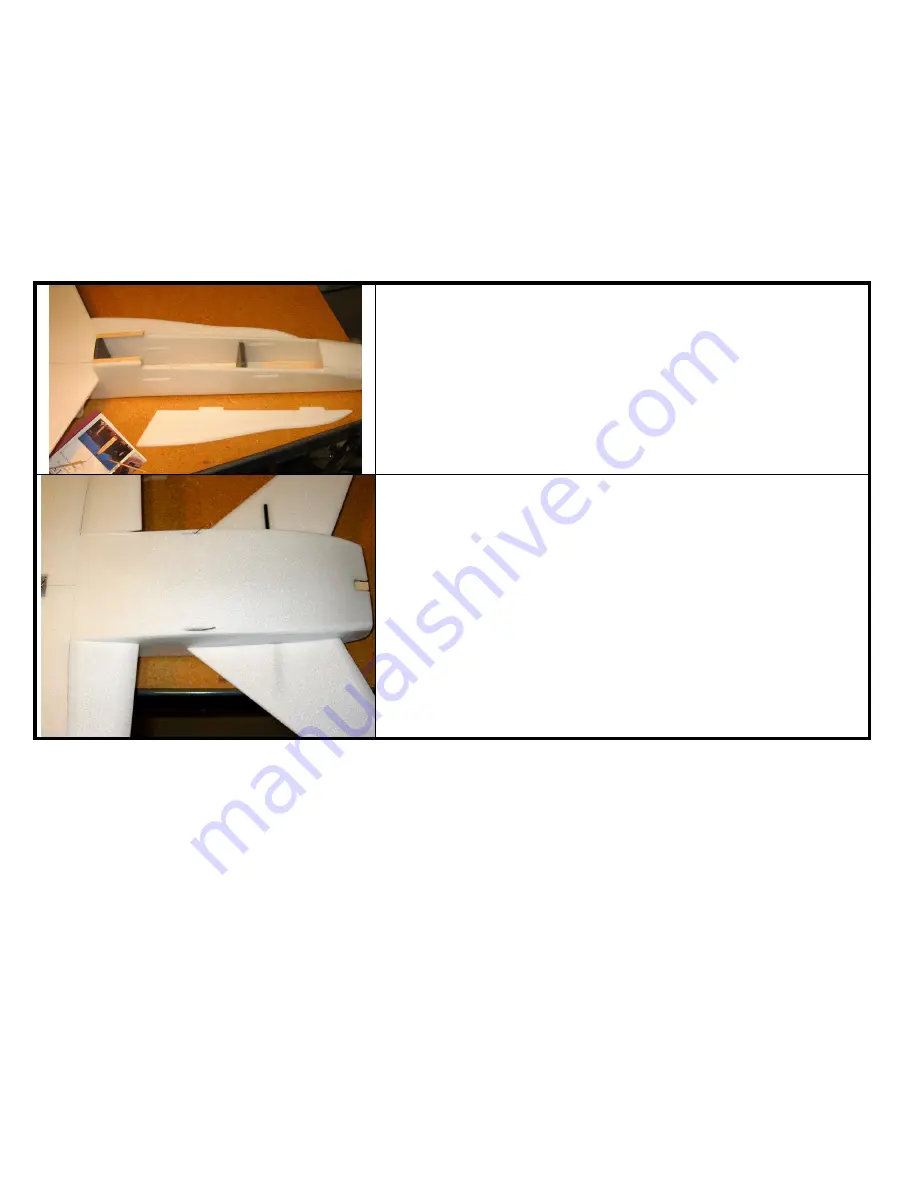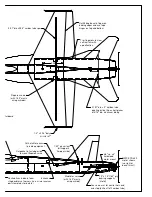
Page 13
19.
Sand the wing strakes to the cross section shown on the plans using fine
sandpaper (220 grit). Then glue the strakes onto the wing and fuselage.
The tabs and slots assure proper alignment.
20.
Next the aft fuselage top is installed. As before, this piece should be pre-
formed with a heat gun to the proper curvature before installation. Note
this piece is slightly oversized in length to allow trimming it to an exact fit
on the model. Also note that, if installing rudders, the slots for the rudder
pushrods are cut before this piece is installed. Glue the piece in place.









































